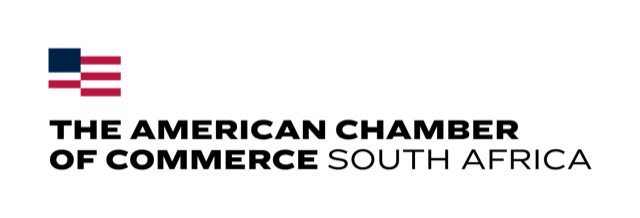Empowering South Africa : The AmCham - RMB Series on U.S Corporate Impact feat. PepsiCO
How PepsiCo drives food security, entrepreneurship and sustainable farming in South Africa
The American Chamber of Commerce (AMCHAM) and RMB have partnered to showcase how U.S. companies are driving social and economic impact in South Africa and on the continent. This month we feature PepsiCo South Africa, one of the leading food and beverage companies in the country, that is making great strides in supporting thriving communities.
While PepsiCo may be known across the world for its namesake drink, Pepsi, the South African subsidiary is responsible for a great variety of South African household favourites, including Simba, Lay’s, Doritos, Sasko, White Star, Spekko, Weet-Bix, Bokomo, Futurelife and Liqui Fruit. This portfolio of brands and its powerful place in the sector came about as a result of its acquisition of Pioneer Foods in 2020. PepsiCo South Africa’s pivotal role in the food industry gives it the opportunity to make a significant impact across the value chain, from various food security initiatives, to feeding children in Early Childhood Development (ECD) Centres and stimulating local entrepreneurship.
When PepsiCo’s acquisition of Pioneer Foods in March 2020 was finalised, the group agreed to a number of Public Interest Commitments, with the overarching goal of driving economic growth. One such commitment was the launch of the Kgodiso Development Fund, focused on investing R600 million into transforming the agricultural landscape of South Africa, strengthening the system for black owned enterprises and suppliers along the food and beverage value chain, and unlocking the potential of South Africa’s human capital through training and development.
To date the fund has directly supported 22 black-owned farming enterprises by providing low-interest loans, upscaling these businesses and enabling them to integrate into a larger value chain. Their interventions have helped farmers improve yields and sustain their operations. Over the first 5 years of the Kgodiso Development Fund it will also have spent R200m on training and development of young people inclusive of graduates and future leaders – many of whom are being employed permanently by PepsiCo South Africa post completion of these programmes.
Riaan Heyl, the CEO of PepsiCo says, “We champion the transformation of the food and beverage value chain by developing and empowering black emerging businesses. This extends to farmers, suppliers, business solution providers, distributors and women-led enterprises. We have also mobilised our funding to address the knowledge and skills gaps in the agricultural system to promote sustainable farming practices.”
According to Heyl, PepsiCo is also nurturing communities through our two feeding programs where it provide meals in primary schools and in ECD Centres.
PepsiCo’s Schools Breakfast Programme, which was launched in 2015, provides primary school children with nutritious breakfast cereals and milk every weekday during the school term. Each year, nearly 35,000 children across 35 schools in 7 out of the 9 provinces benefit from a healthy start to their day.
Another initiative is the Futurelife ECD meals program, called Feed the Future, in partnership with Dis-Chem. In 2024 this initiative will have served 3.6 million meals to children across most South African provinces, as well as created employment opportunities for over 100 food handlers.
This dedication doesn’t stop at an ECD level. The PepsiCo Preneurs initiative launched in 2021, in partnership with Afrika Tikkun Services, to address two critical challenges: the high youth unemployment rate and the lack of understanding on nutrition and nutritious meals in underprivileged areas.
“In October 2024 we welcomed a new cohort of 56 entrepreneurs between the ages of 18 and 21 who will gain practical entrepreneurship skills and work to make affordable, nutritious Futurelife and PepsiCo products accessible within local communities,” says Heyl.
Another commitment made at the time of the acquisition of Pioneer Foods was the establishment of an employee share ownership scheme (ESOP) to support broad-based socio-economic development. As a result of this, the Busumi Trust was launched in November 2021 at a value of R1.655 billion, through unencumbered employee shares in PepsiCo Inc held by the Trust. The Trust has more than 10 000 employee beneficiaries and has been recognized as one of the most innovative employee share trusts by the Department of Trade, Industry and Competition. To date, annual dividend pay-outs have exceeded their original estimations thanks to PepsiCo Inc.’s positive earnings results and share performance.
In line with our global sustainability strategy, called PepsiCo Positive, PepsiCo South Africa is driving positive impact for people and the planet.
Heyl adds, “Sustainability is at the heart of our business, and we’ll aim to continue making strategic investments to future-proof and strengthen our business to drive sustainable growth while promoting positive action for the planet, people and our communities.”
Although part of a global brand, PepsiCo South Africa’s socio-economic and environmental commitments have a distinctly local flavour.
Heyl concludes, “We believe in a positive future for our country and are committed to growing our contributions to the welfare of our communities and our environment through targeted initiatives that show an appreciation of our context.”
